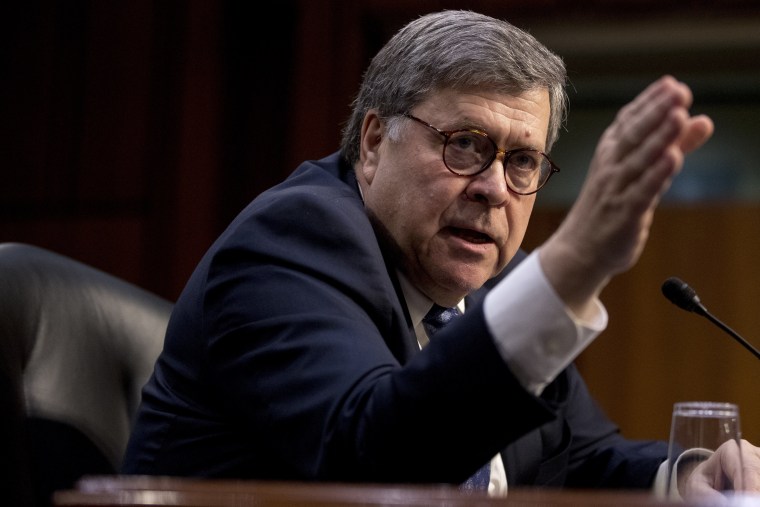The article on the front page of the New York Times this morning drew a specific kind of conclusion about Special Counsel Robert Mueller's investigation:
The investigation led by Robert S. Mueller III found no evidence that President Trump or any of his aides coordinated with the Russian government's 2016 election interference, according to a summary of the special counsel's key findings made public on Sunday by Attorney General William P. Barr.
At face value, that may seem like a perfectly fine summary of what we learned yesterday, but there's a problem with the phrase "no evidence." USA Today ran into the same trouble with its piece:
Special counsel Robert Mueller's investigation did not find evidence that President Donald Trump or members of his campaign conspired with Russia's efforts to sway the 2016 election, delivering a boost to the president in a case that has shadowed his administration since its first days.
Look, I don't want to come across as pedantic about this, but reports like these are taking a step that even Bill Barr was not willing to take.
The attorney general's summary specifically wrote, "The investigation did not establish that members of the Trump Campaign conspired or coordinated with the Russian government in its election interference activities."
And why is that difference important? Because it's entirely possible that Mueller and his team found plenty of evidence pointing to coordination between Team Trump and its Russian benefactors, but it didn't rise to the threshold of a federal crime.
Granted, none of us know for sure. We won't be able to draw firm conclusions on this unless and until the special counsel's report is released to the public.
But therein lies the point: to say that Mueller "did not find evidence" is to make a leap about the findings we have not seen. There is a gap between "no evidence" of a crime and "not enough evidence to rise to the level of an indictment."
Roll Call had a good report along these lines:
"As any prosecutor, you're not looking to exonerate someone -- you're looking through the lens of whether you have sufficient evidence to make a charge," the former DOJ prosecutor said. "Here, they're saying, based on their very extensive investigation -- 2,800 subpoenas is bonkers -- they don't have sufficient evidence that they believe reaches the beyond-a-reasonable-doubt standard."None of that precludes the possibility -- not yet, at least -- that Mueller's team discovered at least some pieces of evidence that support the collusion theory, even if the synthesis of those pieces did not produce a clear enough picture to yield charges. We won't know that until lawmakers get their hands on and publicize the full report and the underlying evidence.But after 22 months investigating the claims of collusion between the Trump campaign and Russia to influence the outcome of the 2016 election, Mueller apparently concluded that he did not have enough evidence to reasonably prosecute anyone affiliated with the campaign on such charges.
The bottom line is this: jumping to a conclusion that Trump's own attorney general didn't reach seems like a mistake.
Update: Rudy Giuliani, appearing on Fox News this morning, twice said that the "reality" is that there's "no evidence of collusion." That, too, is wrong for all the same reasons.
